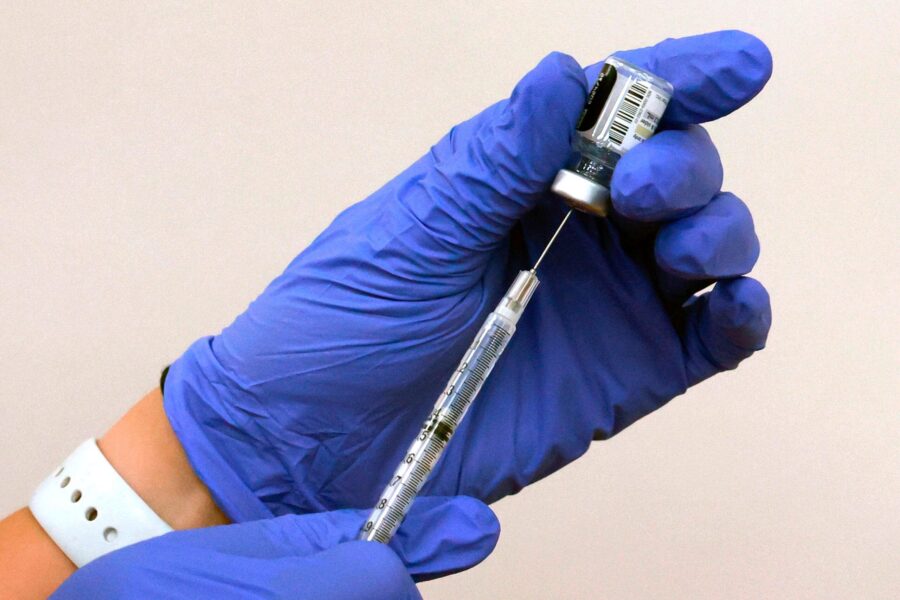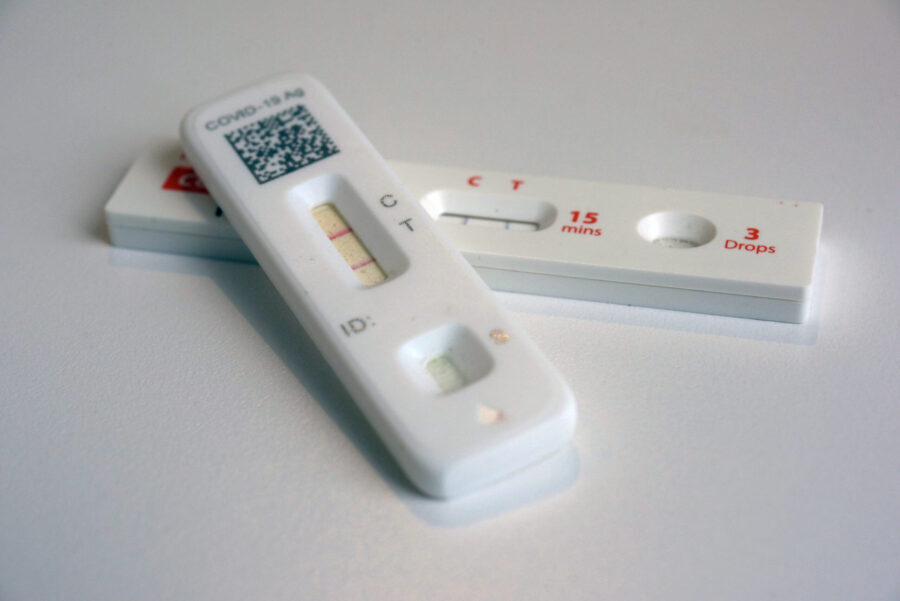Salt Lake County 30-day mask order requires specific type of masks
Jan 7, 2022, 12:40 PM | Updated: Jan 8, 2022, 4:03 pm
SALT LAKE CITY — The Salt Lake County Health Department issued a 30-day mask order that required residents to wear high-quality masks such as N-95 or K-N-95.
The order took effect at 12:01 a.m. Saturday in response to the record-breaking surge of the omicron COVID-19 variant.
SLCoHD Executive Director Dr. Angela Dunn issued the order Friday which required all people in Salt Lake County, regardless of vaccination status, to wear well-fitting face coverings when indoors or queueing outdoors in public.
The N-95 or K-N-95 masks are certified to filter a minimum amount of airborne particles. They can be found free-of-charge to the public at Senior centers and county libraries.
The State of Utah is also offering these certified masks to K through 12 schools.
Cloth masks, however, will be accepted as a backup until a respirator can be obtained.
The @SaltLakeHealth order requires respirators, like Kn95s. Check out these FAQs for more info:https://t.co/2eaZRPgC8n
— Dr. Angela Dunn (@DrAngelaCDunn) January 8, 2022
“We desperately need to use every tool available to ensure our hospitals can continue providing excellent healthcare through this surge,” Dunn said. “We also need to ensure that our essential services have the staff necessary to operate—from law enforcement, to plow drivers, to schoolteachers. It is my obligation as health officer to take the action I believe has the best chance to prevent unnecessary suffering throughout our community.”
The mask order applies to grocery stores, restaurants, hotels, retail stores, offices and schools.
“All kids, teachers, and staff should be wearing a mask when they are in indoor settings,” Dunn said in an interview with KSL-TV.
Dunn said that the mask mandate can help keep schools open with in-person learning.
“We only have a fraction of our five to 11 year olds vaccinated and we want to desperately keep them in in-person learning,” she said.
Exemptions include:
- Individuals under 2 years of age and those with medical conditions, impairments or disabilities that prevent wearing a mask
- Individuals engaging in work where they are alone and individuals for whom wearing a mask would create a risk to the individual related to their work as determined by local, state or federal regulators or workplace safety guidelines
- Individuals seated at a restaurant or other food/beverage establishment while they are actively eating or drinking
The order is scheduled to end at 5 p.m. on Feb. 7.
Salt Lake County Mayor Jenny Wilson signed the mask order Friday evening. Wilson said:
“I deeply appreciate the expertise of Dr. Angela Dunn, our County Public Health Director. I accept her recommendation for a 30-day countywide mask requirement in Salt Lake County. The Omicron variant has spread rapidly. Just two weeks ago, we were at 500 cases a day in Salt Lake County. Today we sit at over 4,600 per day. We recognize the sense of urgency in our community as hospitals are threatened. We need to utilize every tool available to slow the spread and high-quality masks worn indoors in public spaces are a proven measure. Our county is open, we are running business as usual. This is a temporary step that is necessary to get us through this next phase of COVID.”
The letters are below.
SLC mask request to SL Coun… by LarryDCurtis
Salt Lake City mask request… by LarryDCurtis
Utah Senate President Stuart Adams and Utah House Speaker Brad Wilson issued a statement about the Salt Lake County and Summit County mask orders.
Reaction from Utah Legislature on SL County mask mandate by LarryDCurtis on Scribd
Coronavirus Resources
Have you or a family member been affected by coronavirus issues in Utah? KSL wants to hear from you. Contact KSL by emailing social@ksl.com.
Click here to sign up for a vaccine and here to see how Utah’s vaccine rollout is progressing.
The latest COVID-19 stories from KSL can be found here.
How do I prevent it?
The CDC has some simple recommendations, most of which are the same for preventing other respiratory illnesses or the flu:
- Avoid close contact with people who may be sick
- Avoid touching your face
- Stay home when you are sick
- Cover your cough or sneeze with a tissue and then throw the tissue in the trash
- Wash your hands often with soap and water for at least 20 seconds, especially after going to the bathroom, before eating, and after blowing your nose, coughing or sneezing. Always wash your hands with soap and water if your hands are visibly dirty.
- If soap and water are not readily available, use an alcohol-based hand sanitizer with at least 60% alcohol.
The CDC recommends wearing cloth face coverings in public settings where other social distancing measures are difficult to maintain (e.g., grocery stores and pharmacies), especially in areas of significant community-based transmission.











